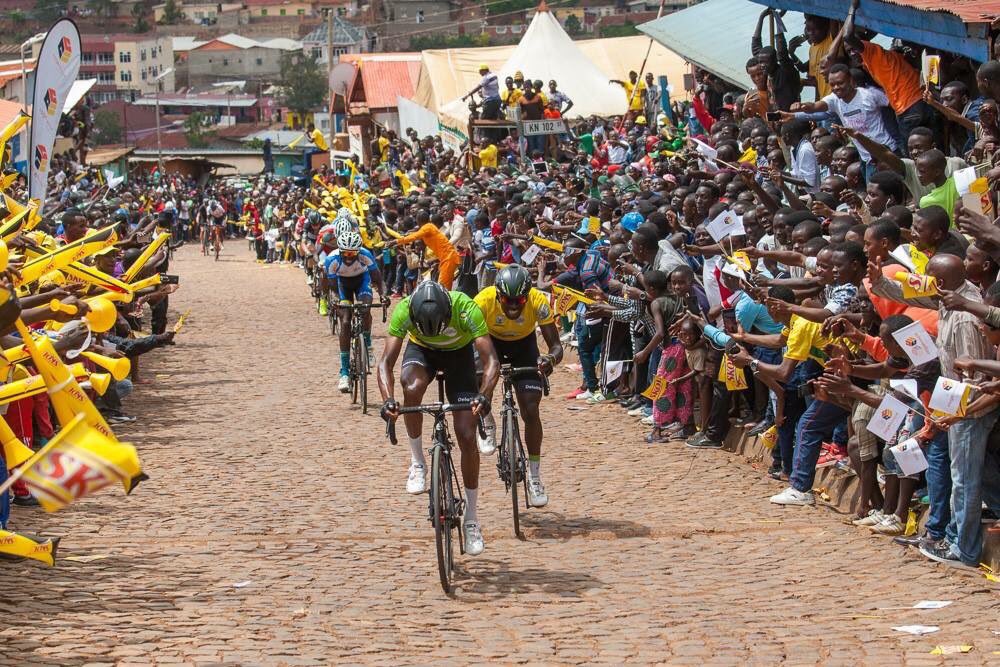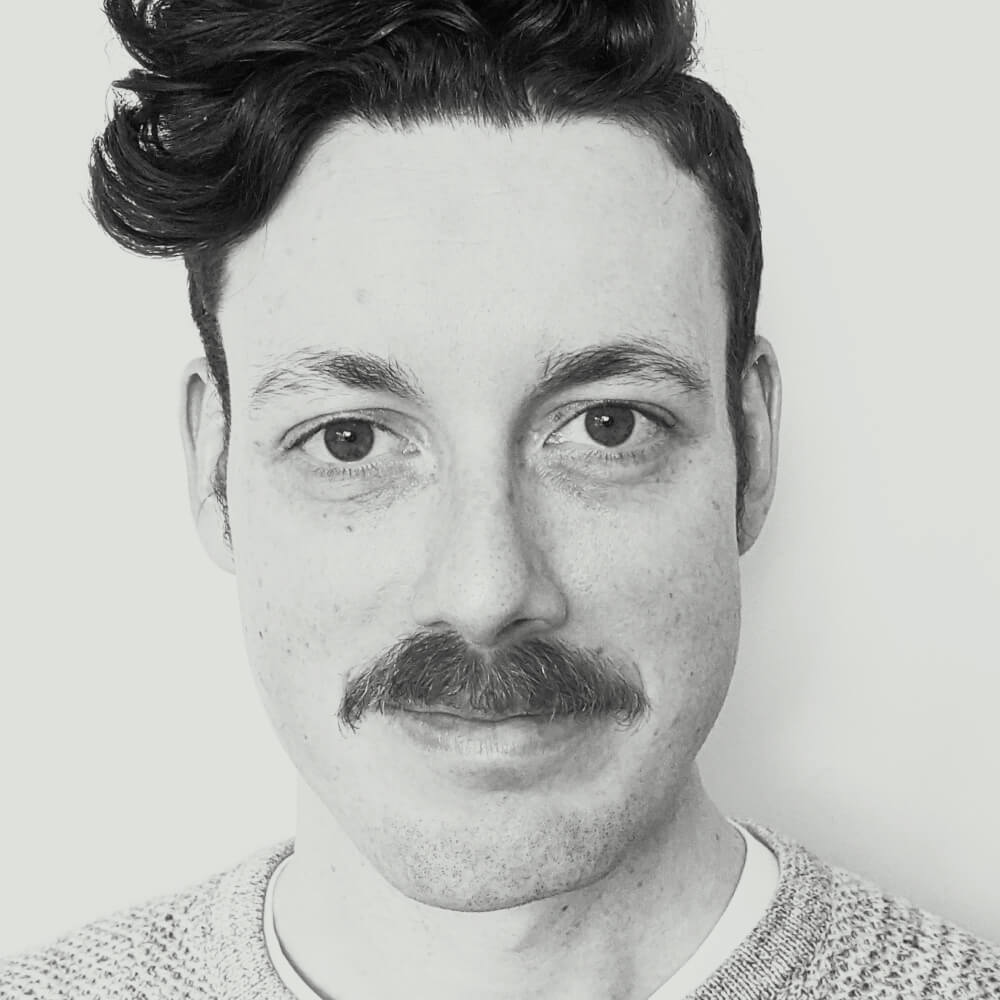In the lead-up to the 2025 UCI Road World Championships in the Rwandan capital Kigali, the country’s cycling establishment is in turmoil with senior members of the national cycling federation (FERWACY) reportedly under scrutiny from the Rwanda Investigation Bureau (RIB).
On August 21 the secretary-general of FERWACY, Benoît Munyankindi, was arrested on multiple charges over suspicions that he engaged in favouritism, forgery, and falsification. Munyankindi has been detained since his arrest while his case is prepared for submission to national public prosecutors. Munyankindi’s colleague at the top, FERWACY president Abdallah Murenzi, is also under investigation on suspicion of being an accomplice. “The president knew about it but took no action,” an RIB spokesperson said.
Rwanda’s anti-corruption legislation is strict, with Munyankindi potentially facing a prison term of up to seven years or fines up to RWF2 million (~US$1,700). A conviction on forgery grounds could also attract a jail sentence of five to seven years, a fine of up to RWF5 million (~US$4,200), or both. The scope of Murenzi’s potential punishment has not been specified.
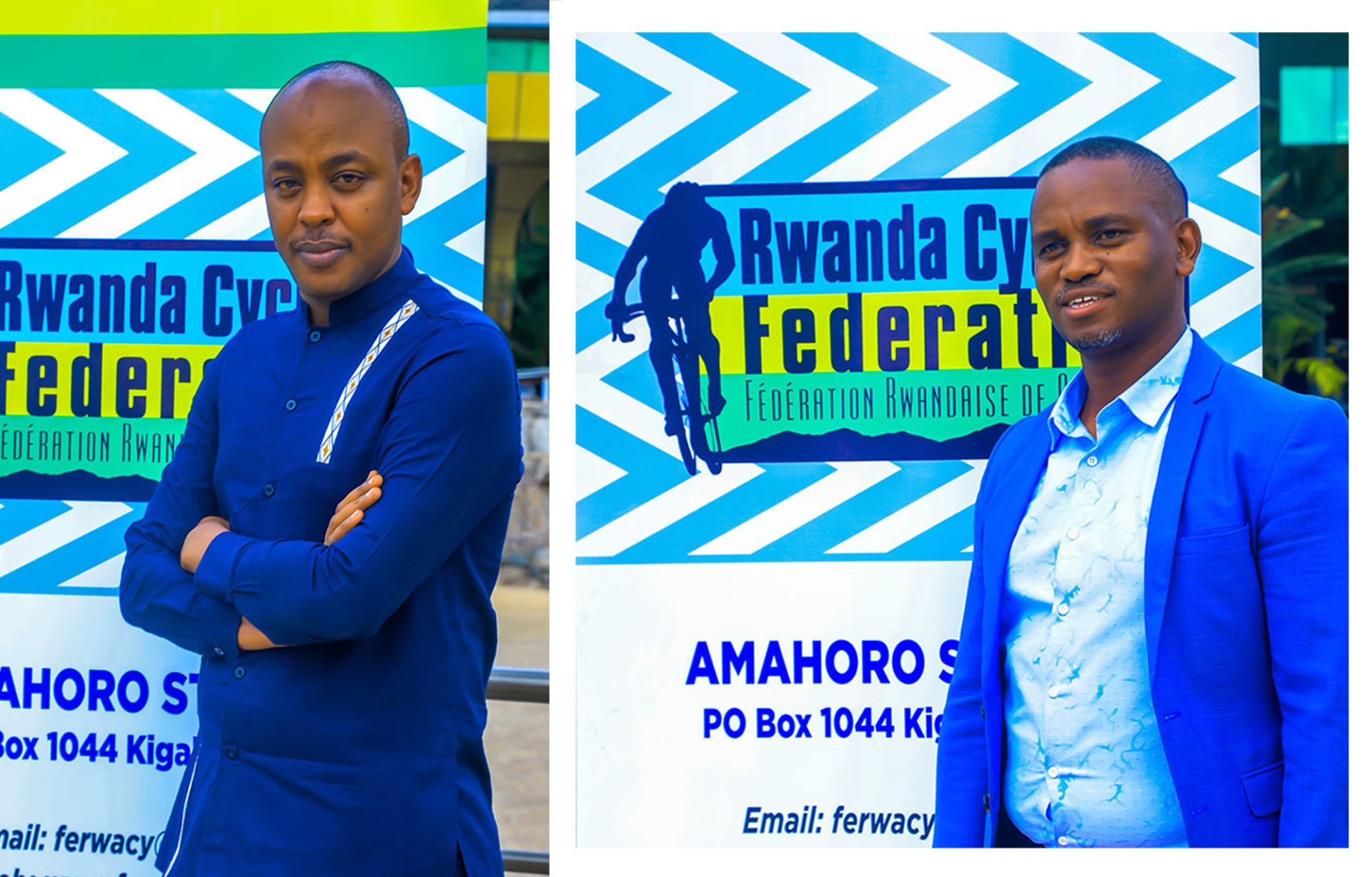
What’s going on?
According to Rwandan publication IGIHE, Munyankindi allegedly used his position to secure a visa for his wife to attend the 2023 UCI World Championships as a member of the Rwandan delegation, despite her not having an official role. Prior to his arrest, Munyankindi described his wife’s attendance at the event as being in the capacity of a “spectator”; her exit was blocked at the border after questions arose around her travel documents.
Meanwhile, sources have told Escape Collective that riders on the national team suffered disjointed and poorly-timed travel arrangements. A trio of junior riders – aged 17 and 18 – journeyed from Kigali on August 3, perilously close to their events. After missing a connecting flight to Glasgow and in the absence of assistance from FERWACY, they sought help from the Rwandan embassy to pay for a seven hour bus ride, leaving on the night of August 4 and arriving within hours of their race the next day.
Escape Collective was provided pictures of profoundly ill-fitting equipment – bikes ordered by Murenzi at a cost of €3,500 apiece, equipped with integrated components and Di2 that could not be worked on in the country, handed to some riders in Glasgow who had never even ridden them before. No Rwandan riders at the 2023 World Championships finished in their road races.
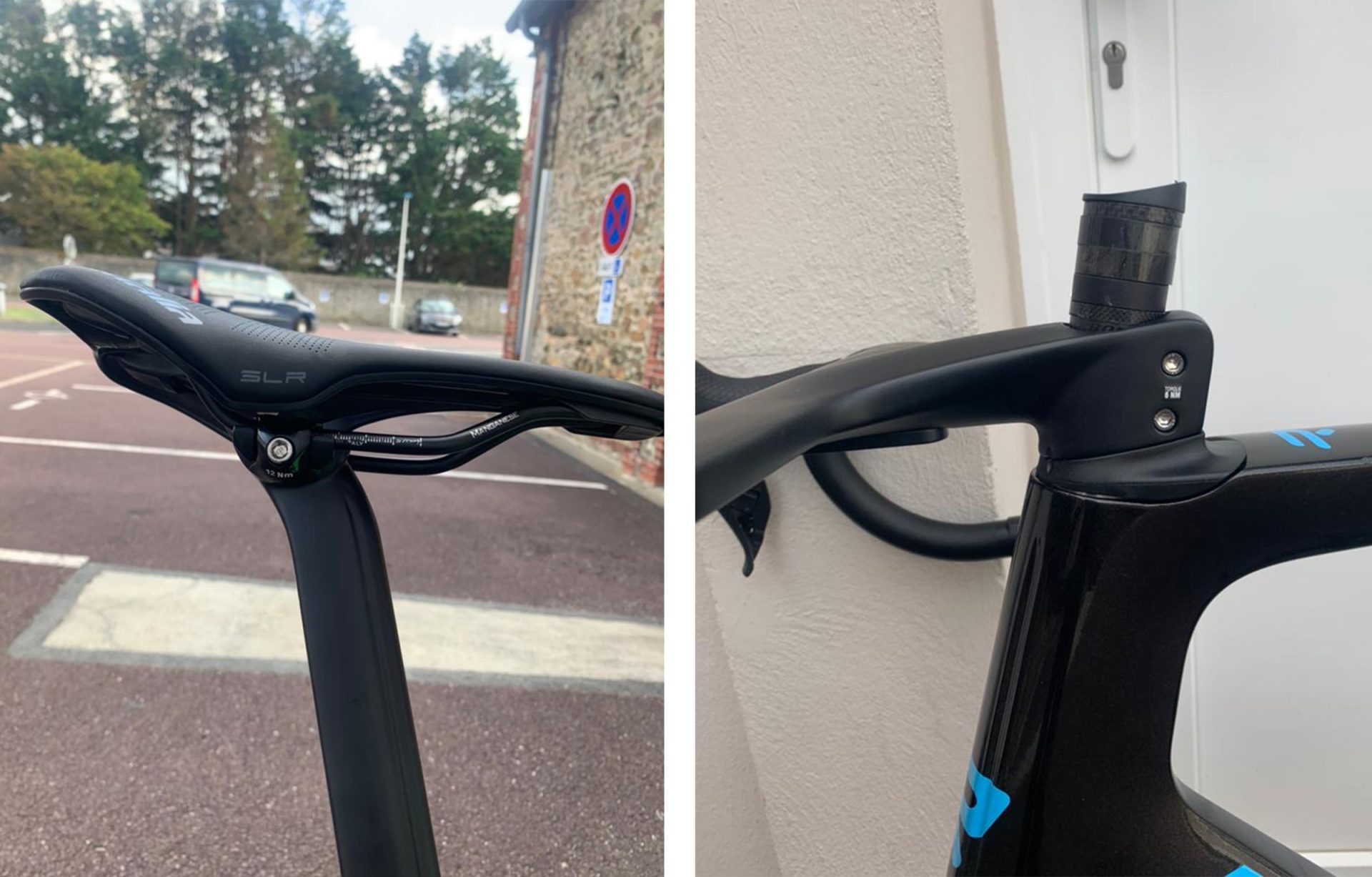
In thinly-veiled remarks yesterday at a major youth summit, the authoritarian ruler of Rwanda, Paul Kagame, took aim at FERWACY. “You take 20 athletes to a competition in Europe. They are young athletes who are willing and capable. They would be even more capable if they got the resources meant for them. But the problem is, those 20 athletes are put on a bus and then the officials fly first-class with their families and friends. [The athletes] end up exhausted and hungry, sometimes they immediately rush to the competitions upon arrival or they arrive when the competitions are over,” Kagame said, pacing the stage with increasing agitation, before urging youth to call out corruption when they saw it.
“You can’t develop when the little resources meant to be invested to develop the sport go to one or two people and not others,” he continued. “It’s a fact that we have officials who work like that.”
Beyond the Glasgow World Championships, allegations of financial impropriety related to Munyankindi have circulated previously. Kimberly Coats – CEO of Team Africa Rising, an organisation which helped establish a cycling program in Rwanda in the wake of the country’s horrific 1994 genocide – levelled similar allegations in a Rwandan radio interview last August, claiming that Munyankindi asked the organisation for funding to support the country’s first continental cycling team, Benediction Ignite – which he also heads.
“He sent me a “pro forma” invoice which I paid in full even though it wasn’t an official invoice. We then found out the items on the pro forma invoice were never purchased,” Coats said, also disclosing that there were unpaid invoices which would eventually result in the loss of donor funding for the team.

The context
Both Munyankindi and Murenzi rose to prominence in FERWACY following a separate major scandal in the organisation in late 2019. At that time, the entire executive committee – including president Aimable Bayingana, a political ally of the strong-armed President Kagame – resigned en masse following multiple allegations of corruption and misuse of funds, as well as accusations that they had turned a blind eye to the repeated sexual abuse of female riders, allowing a predatory coach to continue working with victims even after becoming aware of his conduct.
After the deck was scrubbed and Murenzi became FERWACY president, optimism for change and progress in Rwandan cycling’s lead-up to the 2025 UCI Road World Championships – a bid process started under Bayingana’s presidency – soon unravelled. International actors including Team Africa Rising increasingly found themselves excluded, mourning the decline of what had been the most promising cycling nation on the continent.
“Our biggest sadness is that there seems to be no real hope of arresting this decline, let alone improving Rwandan cycling,” Coats said last year. “At this moment, we sadly believe no Rwanda rider is technically capable of finishing the Kigali 2025 World Championships race. This would be a huge embarrassment for the host country, and it is entirely due to how the Rwandan national cycling programme is currently managed. There is no other possible excuse or reason.”
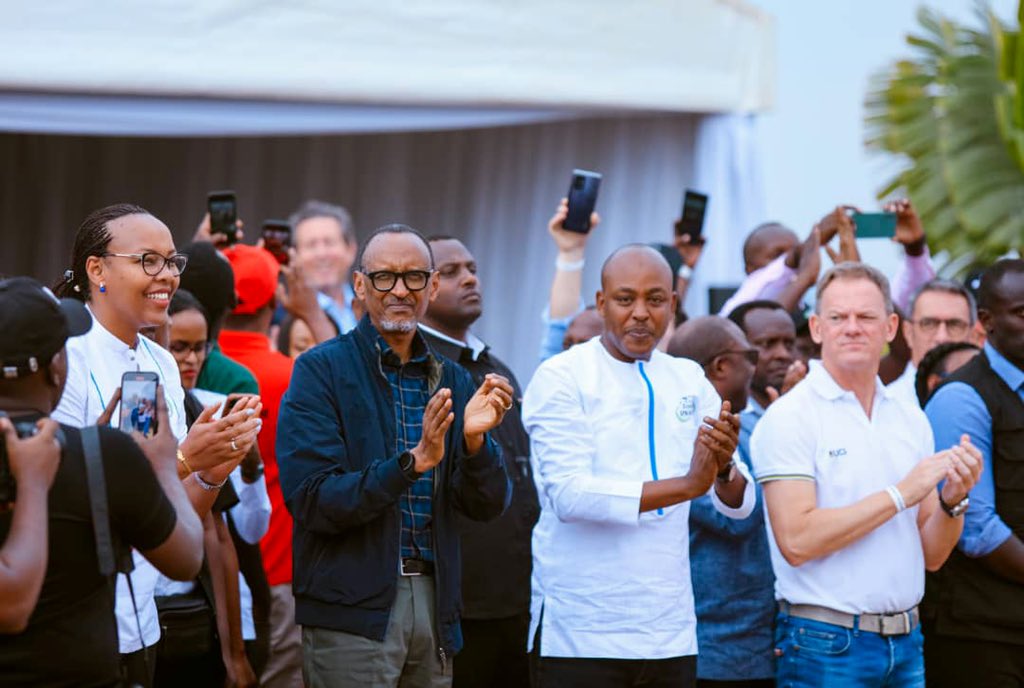
A fading dream
Since Team Africa Rising stepped back from Rwanda, their funding allocation has shifted to supporting programs outside of the remit of FERWACY, including esports initiatives. Meanwhile, Eritrea and South Africa have emerged as the dominant cycling forces in Africa; in 2022 there was no Rwandan rider in the top 25 of the UCI’s continental rankings, with Rwanda the sixth-ranked nation, behind relative cycling minnow Mauritius.
That sets off a self-fulfilling cycle. Rwandan riders falling down the rankings have fewer opportunities to compete, fewer pathways to international attention, with less viability pursuing cycling. To date there has been just one Rwandan rider at the WorldTour level – Adrien Niyonshuti, whose contract concluded in 2017 – and there are currently no Rwandan riders competing above a continental level.
Meanwhile there is an ideological tug-of war in the country’s cycling establishment. On one hand, a thirst to pursue global attention via the World Championships and major events like the Tour du Rwanda – for years the country’s premier cycling showcase. On the other, corruption and neglect undermining domestic development. The result: you need to look back to 2018 to find the last Rwandan winner of the Tour du Rwanda, while last year the country had just one rider in the top 20.
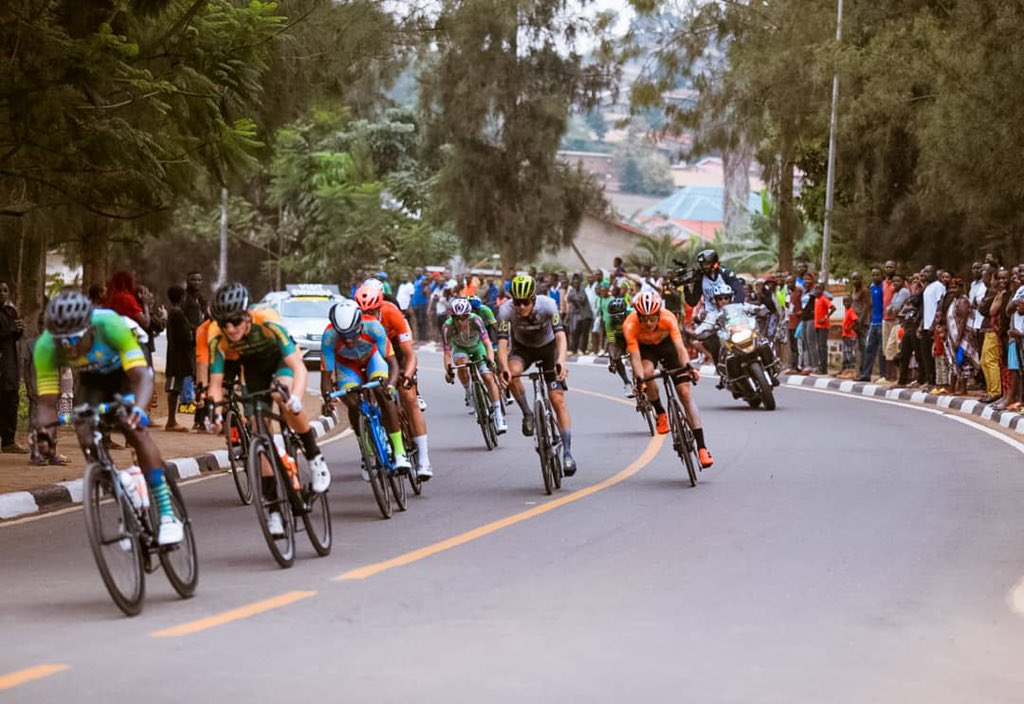
These issues were further compounded by the departure this April of Olivier Grandjean, whose company had been the organiser of the race for 15 years and oversaw its growth from a largely domestic affair to an internationally-recognised, UCI 2.1-ranked event. In a fiery letter of resignation viewed by Escape Collective, Grandjean outlined his frustrations with the race director, Freddy Kamuzinzi. “I leave with my head held high, able to look at myself in the mirror, just disappointed that the power complex and jealousy of [Kamuzinzi] prevents me from continuing the work that has brought the Tour du Rwanda to the highest level,” Grandjean wrote.
That’s just the seed of the problem, though, with an uncertain harvest yet to bear its bitter fruit: Grandjean’s company – Grandjean Sport Organisation (GSO) – was also contracted to deliver the 2025 Road World Championships, and in his exit letter made clear that his departure was a package deal. “As for the 2025 World Championships file, which I initiated and proudly carried, it is obvious that I am definitely withdrawing also from the [Organising Committee] side,” Grandjean wrote.
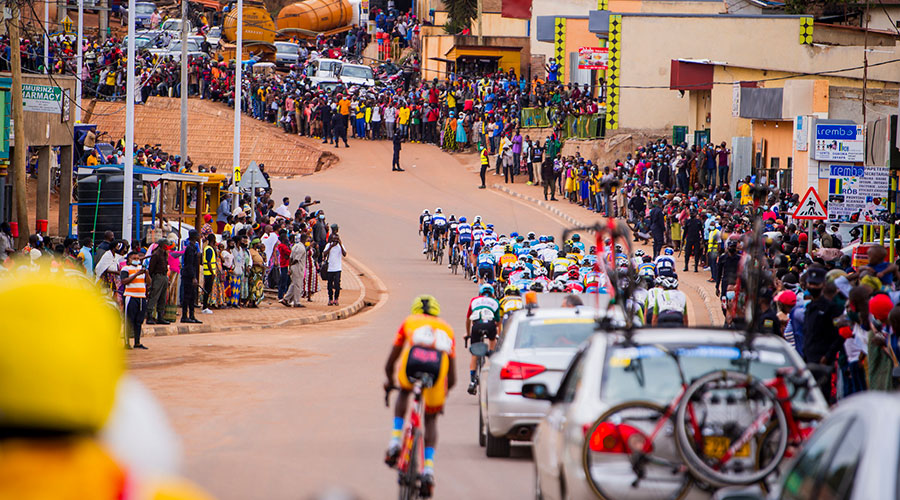
Grandjean’s departure further complicates an already complicated situation for Rwandan cycling: FERWACY, Tour du Rwanda, and the local organising committee for 2025 are left scrambling to replace GSO’s staff, expertise, route logistics, and technical services (which, according to Grandjean’s letter, includes radio services, photo-finish equipment, motorcycle riders, public relations, representation and advice). There may be salvation in the form of Belgian events company, Golazo, recently signing a deal with the African Cycling Confederation to deliver a range of events in Africa – but the World Championships and Tour du Rwanda have not been linked to them.
Five months on from Grandjean’s departure there has been no announcement of a new event organiser for either event – although in the wake of the RIB investigation into the cycling federation, what’s left of FERWACY’s leadership has tried to cast a reassuring tone. “I don’t think the situation will in any way disrupt our preparations for the World Championships,” said executive director Alphonse Nkuranga. “The responsibility for hosting such events goes beyond federations, whose role is just technical. It is about the country and there is a national organising committee that’s in charge … Preparations will continue as usual.”
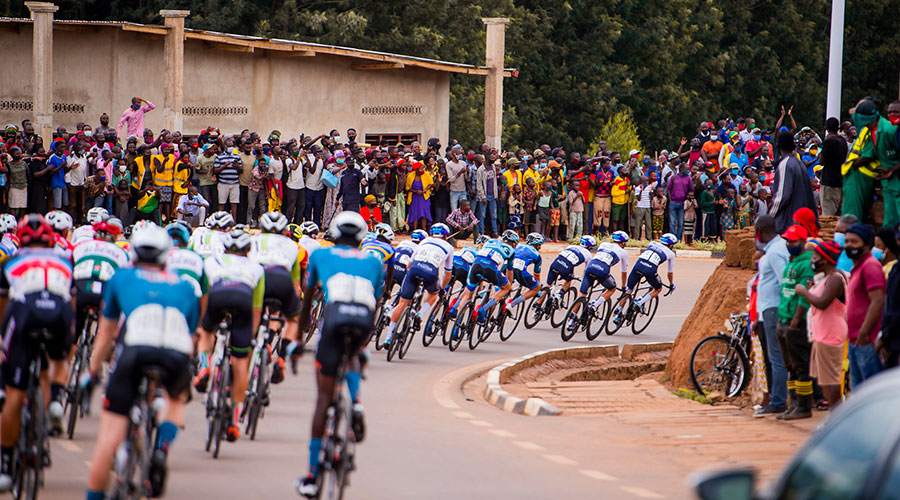
Rinse and repeat
In Rwanda, the World Championships are all about the country. The Kagame regime has made sports a pillar of Rwanda’s international outreach, with a £10 million-per-year sponsorship of Arsenal Football Club the most prominent example: Arsenal claims that “One year after the partnership began, Rwanda’s tourism revenue increased by 17 per cent and tourists from Europe increased by 22 per cent.” The 2025 Road Worlds bid is another example, coming at a reported cost of €7 million paid to the UCI, with an additional €12 million in organisational costs – and again, Rwanda will be looking for a return on that and a boost in reputation and visitation.
There’s another word for that, and it’s ‘sportswashing’ – sanitising a political space described by Human Rights Watch as “closed”; Kagame won the 2017 election with a vote of 99%. Meanwhile, Human Rights Watch says that his ruling party “wage[s] a campaign against real and perceived opponents of the government”, even beyond the country’s borders, and freedom of expression is not guaranteed.
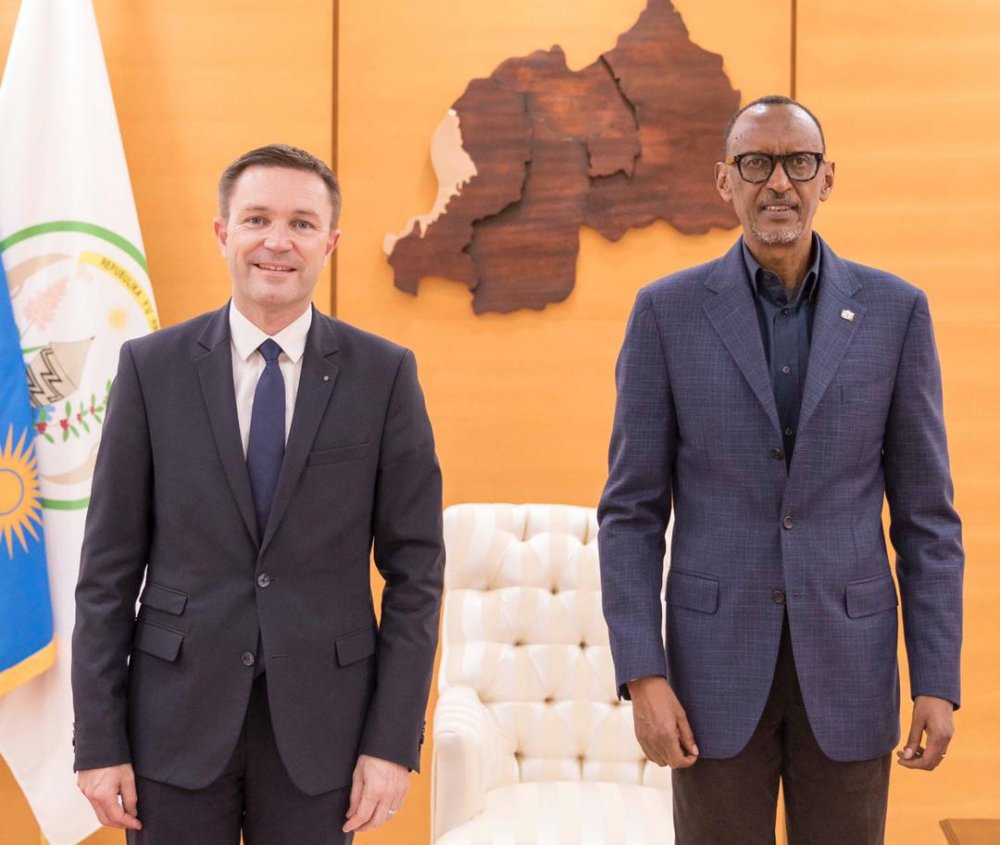
UCI President David Lappartient had an audience with President Kagame in early 2021. When challenged on the country’s human rights record at the 2021 UCI Congress, shortly after Kigali’s hosting of the 2025 Road Worlds had been announced, Lappartient said, “I have always said that the question of human rights was a major issue for the UCI … what I saw was a government that has gone through a very complicated crisis and has been able to unite people. When you look at where Rwanda came from and where it is today, I think that can only be done with real leadership.” Speaking at the same event, FERWACY president Murenzi said, “these are things you cannot mix, because sport is sport and politics is politics. Those who say there is a problem with human rights … then can say what they like but in Rwanda everyone is safe, everyone is good, whether it’s Rwandans or foreigners.”
“[The UCI] Choosing Rwanda to host the [World Championships] was motivated by many factors,” FERWACY executive director Nkuranga said yesterday. “They looked at the country, the environment, availability of facilities like hotels, the state of cycling in the country, the political will, among other aspects.” But the state of cycling in the country is declining and Kagame is now openly critical of the alleged corruption gripping FERWACY, so the political will appears to be turning. That leaves country, environment, a genuinely engaged populace, hotels – and, perhaps most importantly, millions of euros.
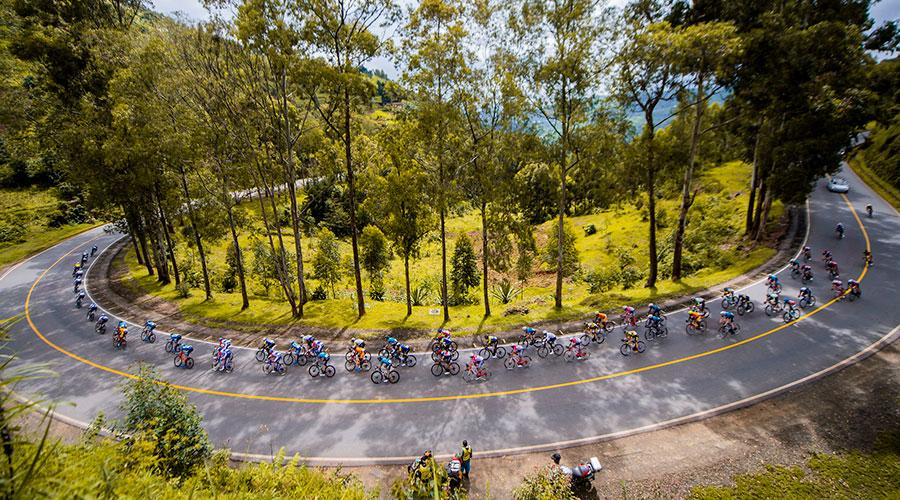
Tick, tock
We are two years out from the first-ever road world championships to be held on the African continent, an event that is supposed to be a showcase of Rwanda’s love of cycling. The 2025 edition was designated as an African affair before bidding was even open, meaning that it was built from the ground up as a tangible marker of progress in the UCI’s attempts to globalise the sport – but as this year’s UCI Congress revealed, a lot of African federations are dissatisfied with the support they are receiving from the African Cycling Confederation, the UCI, or both.
And in Rwanda – the land of a thousand hills, as it’s called – time is running out and problems are mounting.
To recap:
- The top two figures in the sport’s governing body are under investigation for corruption, just a few years after the entire FERWACY leadership resigned due to corruption and sexual assault allegations
- The country’s sporting development appears to be rapidly deteriorating
- The event organiser of the country’s biggest race has left in acrimonious circumstances, taking with him most of the equipment needed for its successful operation
- The successful organisation of the World Championships is seemingly at risk as a result.
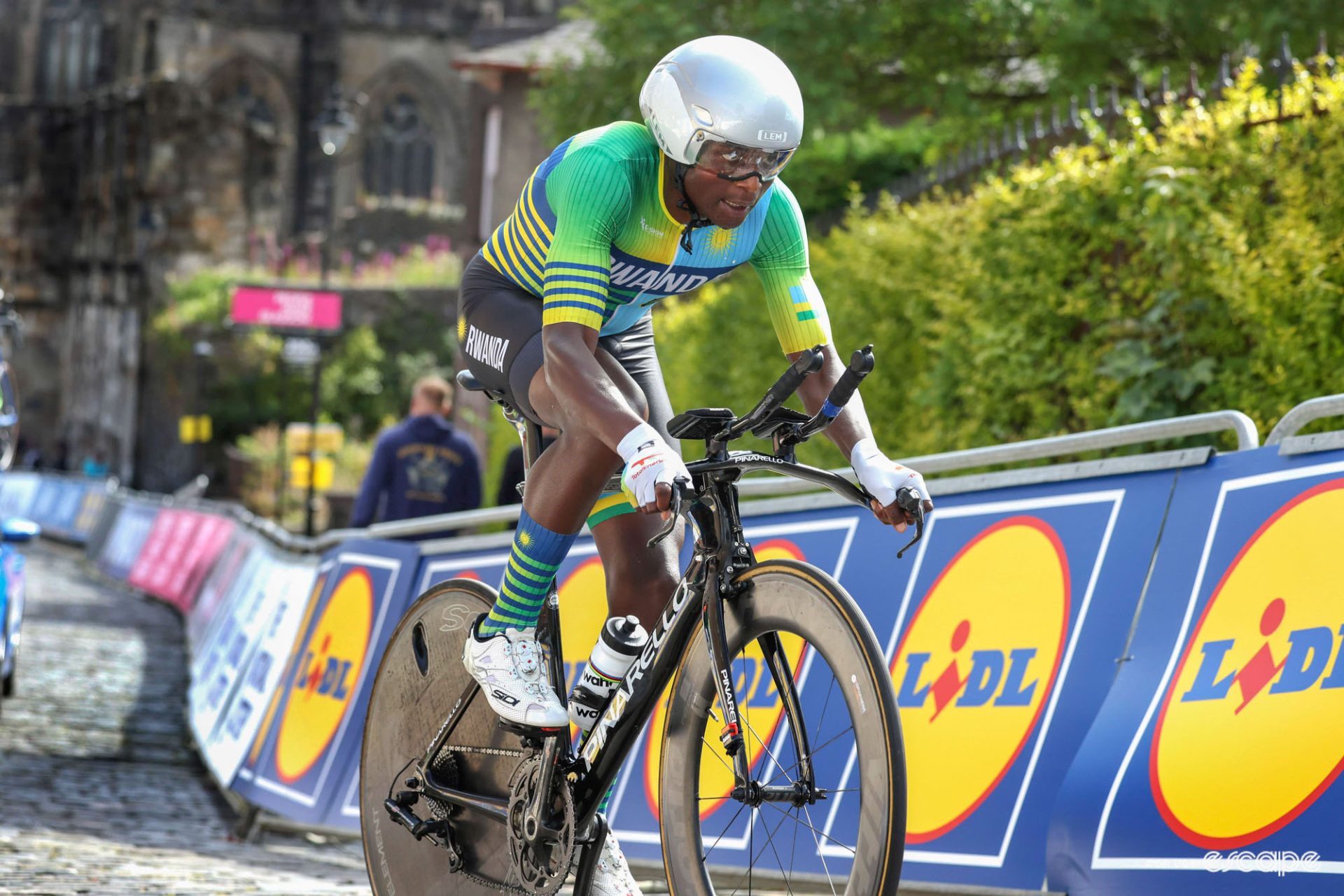
When Worlds heads to Kigali in 2025, it may well be a triumph – and for the sake of African cycling and Rwanda’s investment, let’s hope it is. There’s a lot to gain for the development of the sport, and with the fervent support of local fans, it seems on paper like it will be a Worlds to remember.
But two years out, with a growing list of serious obstacles to overcome, it looks like the land of a thousand hills has grown a few more.
The UCI and FERWACY were provided with a detailed list of questions for comment prior to publication. Golazo and Grandjean Sport Organisation were also contacted for comment. None of these parties responded.
What did you think of this story?
